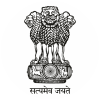REGIONAL LANGUAGE CENTRES
Central Institute of Indian Languages (CIIL), Mysuru

Central Institute of Indian Languages (CIIL), Mysuru

The Central Institute of Indian Languages has established seven Regional Language Centres at Mysuru, Bhubaneswar, Patiala, Pune, Solan, Lucknow and Guwahati (see Table 1) with a goal of training school teachers in a second language and thereby contribute to the implementation of three-language formula and national integration. As stated in National Education Policy 2020 para 4.13, there will be a greater flexibility in the three language formula. The States and Union Territories need to invest in large number of language teachers in the VIII Schedule languages of the Constitution of India. With over 5 decades of its experience in offering Language training programmes, the RLCs will help the government of India to produce large number of language teachers in Government and Government-aided schools and thereby continue to implement the three language formula effectively.
From the beginning of the Regional Language Centres offers 10-month Diploma in Language Education in second language over 5 decades usually from July to April every year. It involves 1085 hours of effective language instruction and learning. The total intake of this residential programme is 506.
This intensive training programme enables one to gain full mastery of the concerned second language. On successful completion, the trainees (in-service teachers) are required to teach the language learnt as a third language thereby contributing to the implementation of Three Language Formula in the concerned states.
The Regional Language Centres (RLCs) are located in seven states including Karnataka, Odisha, Punjab, Maharashtra, Himachal Pradesh, Uttar Pradesh and Assam. The members of the academic staff at these Centres are trained in language teaching and Applied Linguistics. They have a rich experience of second language teaching-learning including curriculum development, preparation and evaluation of textbooks, testing, and translation. They not only provide training to the teachers but also open up new vistas in the study of language, culture, bilingualism, translation and other areas related to language education. The Regional Language Centres have adequate facilities for modern language teaching. Barring NERLC, Guwahati, all the Centres have a well-equipped language laboratory of 20-25 terminals and library with more than 15,000 books, journals and newspapers. The libraries at these centres house a wide range of books on literature and social sciences in the languages taught at the Centres, besides dictionaries, reference books, general books in applied linguistics, grammar, translation and various topics in English and other languages. The trainees can develop reading skills in the language they learn and fulfil their interests in other topics related to language, literature, criticism, social and language teaching.